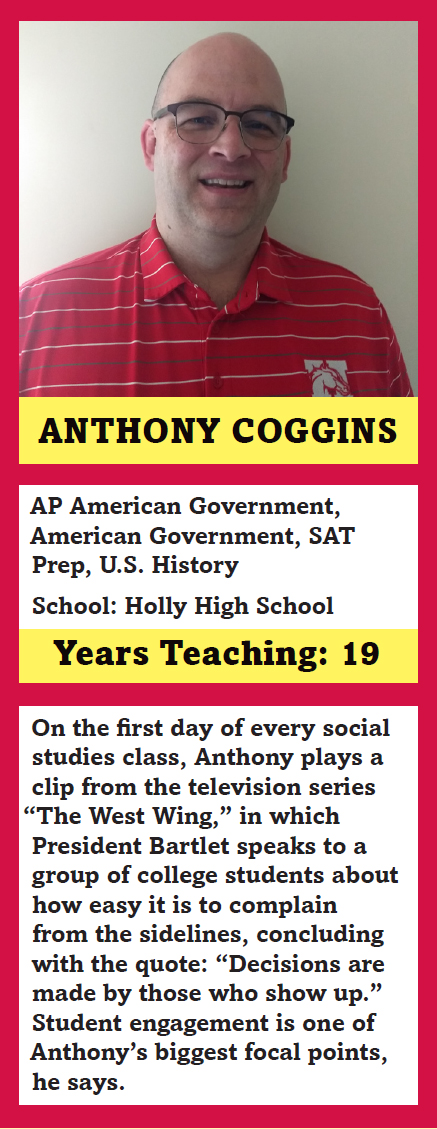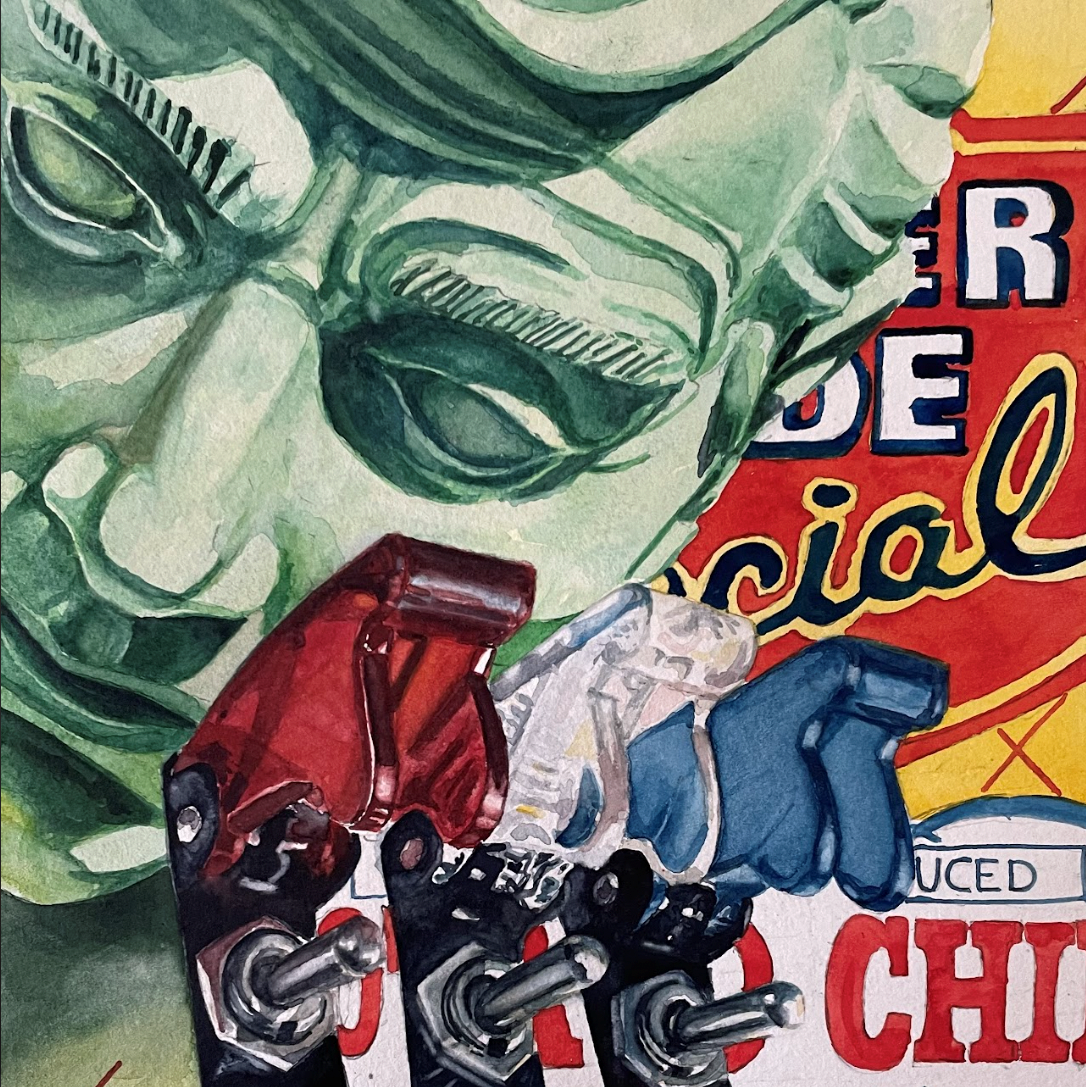Anthony Coggins
 What does political interest/involvement among students look like where you are?
What does political interest/involvement among students look like where you are?
I have seen many of our students volunteer time working on local, state, and national political campaigns. Recently, one of my students was on the campaign for newly elected U.S. Congresswoman Elissa Slotkin. Also our students work the voting stations for each election in our local areas. We have 20-30 who are educated in the need and methodology for election workers. One of the best experiences we have had was our RHO KAPPA Society (national Social Studies Honor Society) hosting a forum for candidates at local, state, and national levels this past fall. The students wrote and posed the questions to the candidates. In all, the students realize to make a difference they must be active in society.
What do you do to interest students in how government works?
One of the best experiences I am able to provide is a trip to Washington, D.C., every other year for any student who is interested. We spend a week, allowing students to see the activity up close, meet the lawmakers at multiple levels, and learn about the history of our founding and how that shapes who we are today. Also in class we try to do multiple simulations to bring the education to life. Students have a political debate between federalists and anti-federalists regarding the Constitution, plus we do a Senate simulation on trying to pass multiple bills.
What are some examples of current events/arguments/court cases you have used to draw students into deeper learning and debate?
In recent years, the Supreme Court cases of National Federation of Independent Businesses v. Sebelius (2012), United States v. Windsor (2013), and Obergefell v. Hodges (2015) have brought about great discussions regarding the Equal Protection Clause of the 14th Amendment. We have also looked at items such as the Asylum Ban (Executive Order 13769) as signed by President Trump in 2017, and the current call for a wall on the U.S. southern border. The discussions have had people on both sides and have led to some contentious times. My job is to get the students to realize they have the power to think for themselves and to come up with good, unbiased sources to support their argument. Sometimes it is easy; most times it isn’t. However, it is always exciting and educational.
Does this add political tension to your job?
It can. I have had parents say they don’t like talking politics in school, and I understand. I respect familial beliefs and would never say they are wrong. I tell parents my job is not to tell students what to think, but my job is to challenge students and get them to think for themselves. I take that charge very seriously, and will continue to push students to see both sides of an issue until the day I retire.


